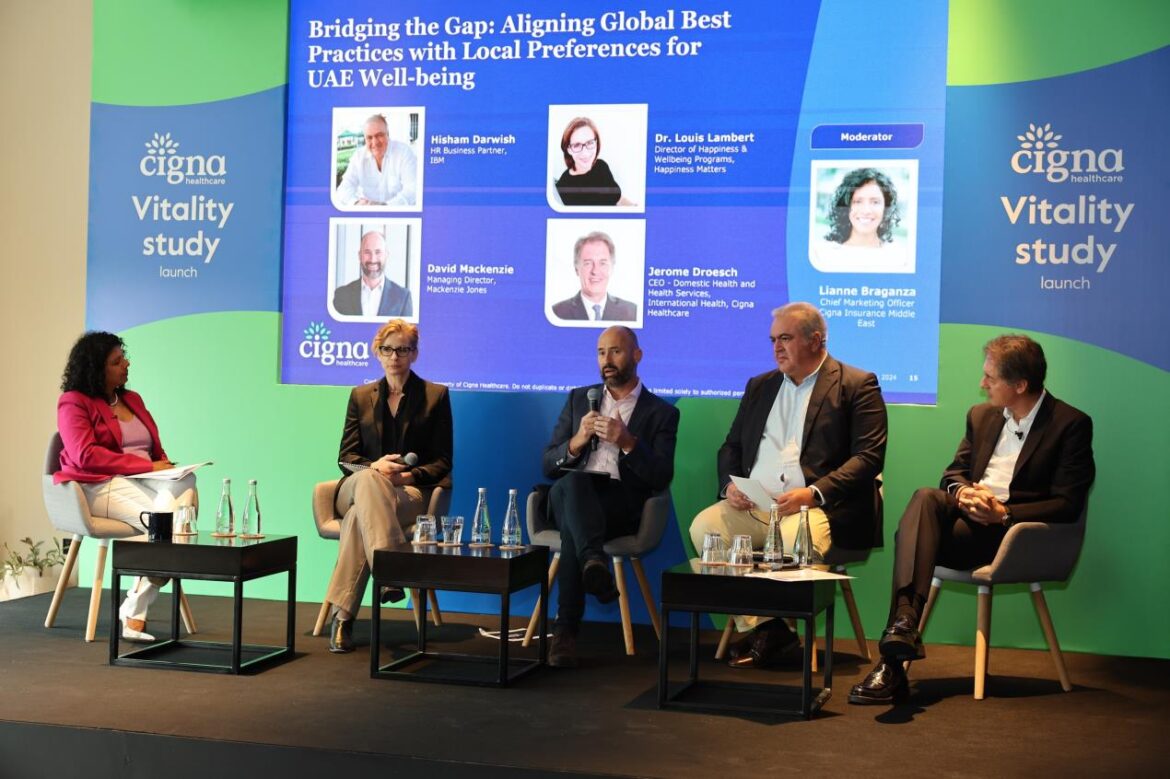Cigna Healthcare recently unveiled the results of its Cigna Healthcare Vitality Study.
The global survey of over 10,000 respondents in 12 markets assessed eight key aspects of vitality – emotional, environmental, financial, intellectual, occupational, physical, social, and spiritual, assessing whole-person health.
It also examined how individuals perceive their autonomy, competency, and relatedness.
The survey found that the UAE’s specifically witnesses higher-than-average vitality levels, and a better work-life balance.
Thirty-two per cent of UAE respondents reported high vitality levels, surpassing the global average of 17 per cent, however, this figure was a 7 per cent decrease from the previous study.
The results also indicated some variability between men and women, with women showing marginally higher vitality than men. Millennials (ages 25-44), meanwhile, came out on top when compared with different age groups.
Indeed, while the UAE outperformed the global average, Saudi Arabia scored a higher level of vitality at 38 per cent.
From the wellbeing perspective, intellectual and emotional wellbeing were found to be prioritised by UAE respondents, with 71 per cent expressing that they value learning new things and 65 per cent looking forward to each new day.
However, at the same time, stress and burnout were found to remain high at 89 per cent, with 99 per cent of respondents experiencing burnout symptoms.
The ‘cost of living crisis’ was found to be the leading cause of stress (45%), followed by personal and family financial concerns.
The survey also revealed that 61 per cent are working full-time in the office and others in hybrid arrangements., a shift which has led to increased concentration at work (44%) and enhanced coworker relationships (40%).
Further, in the UAE, 74 per cent of employees feel challenged by inflation in the context of maintaining health, with 77 per cent desiring more employer support.
Private health insurance plans (83%), flexible work arrangements (35%), and mental health support (33%) were the top employee preferences for health programs.



